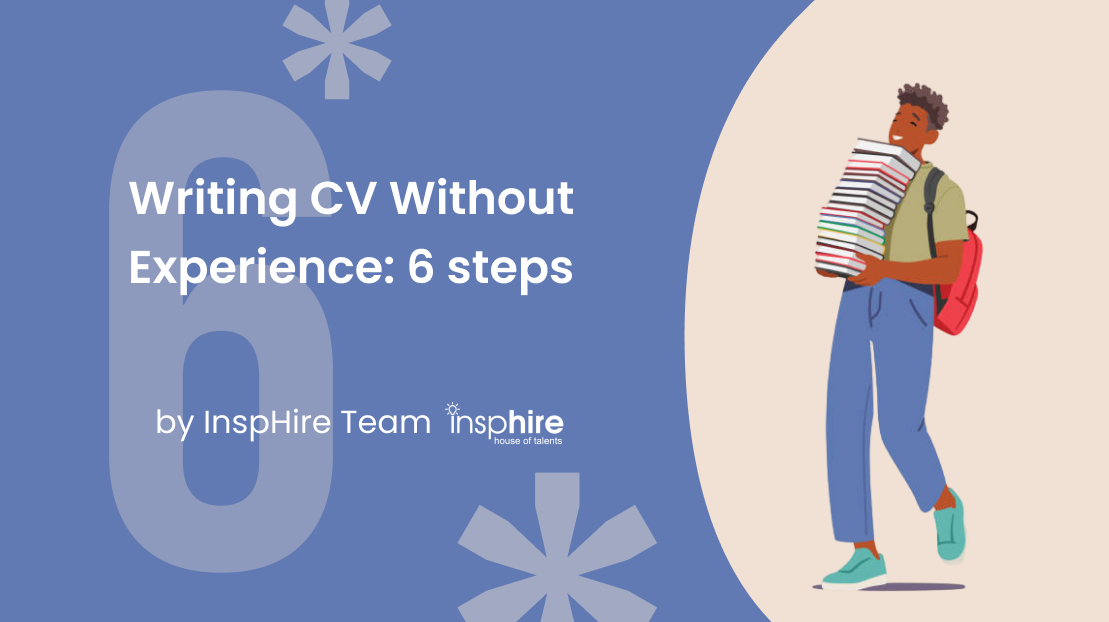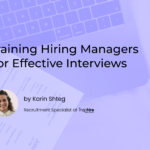Finding your first job can be challenging, especially when you have no real work experience to showcase. However, you have more to offer than you might think. Today, we’ll guide you through tailoring your CV to make a strong impression, even if you’re just starting out.
Good News: Your CV Won’t Be Empty
You already have more than a blank slate. Your CV can include your name, educational background, interests, and any study projects or extracurricular activities you’ve been involved in. This foundation is enough to start building a compelling narrative about your potential.
Good News Number Two: Flexibility Is Your Advantage
With limited experience, your CV can be easily adapted to various job positions. This flexibility allows you to tailor your resume to match the specific requirements of each job you apply for.
Steps to Tailor Your CV
- Analyze the Job Description
- Begin by carefully reading the job description of the position you’re interested in. Make sure it’s an entry-level role that seeks candidates with minimal experience.
- Align Your CV with the Job Requirements
- Identify the key requirements and qualifications listed in the job description. Then, customize your CV to highlight how your background, education, and any relevant projects align with these requirements.
- Highlight Relevant Experiences
- Even if you lack professional experience, you can draw from academic projects, internships, volunteer work, or any informal experiences. Describe your study projects, student organizations, or personal projects that demonstrate relevant skills.
- Emphasize Soft Skills
- For entry-level positions, soft skills are crucial. Showcase your ability to work in a team, your enthusiasm, and your passion for learning. Include any volunteer experiences to illustrate your proactive attitude and dedication.
- Match the Company’s Values
- Research the company’s mission and values on its website. Reflect on how your values align with the company’s and mention this in your CV. This shows employers that you are not only qualified but also a cultural fit.
- Use Relevant Keywords
- Extract keywords from the job description and incorporate them into your CV. This can help your resume get past applicant tracking systems and catch the attention of hiring managers.
Tips for Students to Build a Strong CV
If you’re still a student, there are several proactive steps you can take to ensure you have plenty of experiences to include on your CV when you start job hunting:
- Start a Blog: Writing about your interests or industry topics can showcase your communication skills and passion.
- Manage Social Media: Running social media accounts, even for personal projects, can demonstrate your digital literacy.
- Volunteer: Engaging in volunteer work at a charity shop, sports club, or through community events can build your teamwork and leadership skills.
- Participate in Charity Runs: Organizing or participating in charity events shows your commitment and organizational abilities.
- Pick Up a New Hobby or Sport: Developing new hobbies or sports can highlight your willingness to learn and personal growth.
- Gain Relevant Internships: Seek out as many relevant internships as possible. Internships provide hands-on experience, industry knowledge, and an opportunity to apply your academic learnings in a real-world setting.
- Network at Internship Placements: Build and maintain professional relationships during your internships. Networking can open doors to future job opportunities and provide valuable references.
Conclusion
Employers hiring for entry-level positions don’t expect extensive experience. They are looking for passionate, enthusiastic individuals who are eager to learn and grow within their company. By tailoring your CV to highlight your soft skills, aligning with the company’s values, and showcasing your unique experiences and projects, you can make a strong impression. Be genuine, let your personality shine through, and demonstrate your potential. Your first job is just the beginning of your professional journey.






